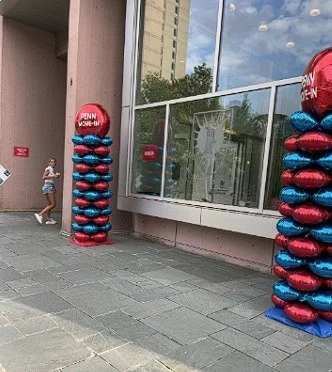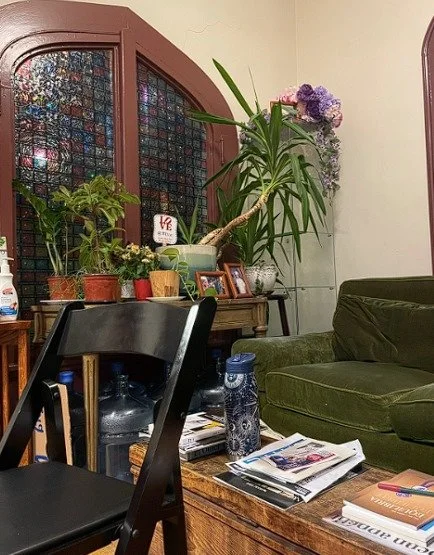Behind the Scenes of College: Reality vs. Hollywood (Aleiyah Aguero)
“I don’t know about you, but growing up, I had always looked forward to the alleged “best years of my life”--or, college. I had been told that I would have so much fun meeting people who lived in my dorm hall, hopping from frat house to frat house and getting hammered before taking a midterm the next day. I looked towards these days with excitement, as the media had portrayed these 4 years as something that you would look back on for the rest of your life in nostalgic reminiscence. However, now that I am living in my “glory days,” I can’t help but feel like I was lied to.
I am sure that there are people out there who are living out the movie-like college experience. Unfortunately, I am not one of said people. I came into college with high hopes and big dreams of breaking out of my comfort zone and finally trying to revamp my self-image, after grinding my way through high school and mainly being known as the know-it-all amongst my peers. After putting so much work into my academics, I wanted to finally relax and explore a new wild, carefree side of myself where I could make a bunch of friends and find platonic soulmates to eventually invite to my wedding one day. While I started off strong in my socialization, I quickly noticed how superficial many of the people I encountered were, and how the college I envisioned in my head was not exactly realistic.
During my freshman year orientation week, I went to campus-sponsored events and intermingled with fellow first year students, getting some peoples’ phone numbers and trying to find out where the nearest party was. But, I soon noticed that cliques formed rather quickly, and that many of the people around me were solely interested in making acquaintances rather than actual friendships. I suddenly felt very isolated and unmotivated, having previously hoped that I would immediately click with a group of people and find my forever friends. Looking back, this was incredibly unrealistic of me, and I now know that many people are simply looking for a good time rather than something permanent.
Even though I participated in as many events as I could, I spent a lot of my first few weeks alone and mildly depressed. I had hoped that college, especially orientation, would be filled with partying and crazy stories that I could look back and tell my kids one day. Maybe I’m a dork incapable of socializing or putting myself out there, but no matter how hard I tried, I just could not click with anyone. I didn’t want to show up to house parties uninvited and stand in a corner alone. All of these feelings hit me at once, and it was very hard to deal with, on top of having moved into a new part of the city all alone, learning how to take care of myself without a rigid schedule or structure. As embarrassing as it sounds, I cried myself to sleep my first night in my dorm room, disappointed and unmotivated.
I won’t say that I finally found my people and that everything started to look up from there. Honestly, I just kept my head down and tried to make friends whenever I could, by asking people to study after class or to bring me to a campus club meeting. But many people I interacted with were either too busy or simply disinterested in my friendship, as our interactions mainly took place within class or when someone needed an answer to a homework question. I started to fall into a depression by the middle of the year, between barely having any friends, juggling school work, and living by myself in the middle of a big city. It was during this time that I started trying to reframe my thought process on college, despite how much it hurt to accept the fact that it wouldn’t be as memorable as I had hoped. I began to stop comparing myself to others, to accept the loneliness that I had felt, and to take the free time that I had after class to learn about myself and what I liked to do when I was not surrounded by others.
It was disheartening to recognize, but reframing my thoughts certainly helped. Rather than setting myself up for failure and expecting too much out of a real-world situation, I started to attend class simply to get my education, and if a friendship happened to bud, then it would. I stopped seeking situations out and started waiting for them to come to me instead, because burning myself out socially only to find disappointment was no longer worth my time. Instead of assuming I was entering some sort of movie-world every time I stepped on campus, I started thinking of college as a task I had to get done every day in order to get my degree, and that I would have a life outside of it. My life would not revolve around college--instead, I would put more energy and attention into the friendships I had formed before it.
I started scheduling hangouts with my high school friends, even though having to travel back and forth through the city was taxing, because it started to fulfill me in a way that college had not. I no longer felt alone and I realized the value in paying attention to what you already have rather than what you could potentially obtain. It hurt to see others having a good time on social media, watching my classmates travel to the Bahamas over Spring Break and being accepted to top internship programs, but I knew that interacting with people who did not value actual personal connection would not fulfill me in the end.
It is still difficult to deal with this realization, but as I get older, I learn to accept it more and more. For many people, college is just a couple of classes they have to attend before going back home and doing the tasks that they always have done. Not everyone moves out of state or out of their city to go to school, so it is not necessarily an out-of-ordinary experience. Despite living on campus my first two years of college, I tried to think of school in this way, as if it was just like my normal high school schedule where I would go to class and simply go home and live my life afterwards. It is okay to not be super involved in your college campus if it does not fulfill you, and that is one of the biggest lessons I have learned thus far.
I also have grown to recognize that loneliness is a gift. It may be hard to hear and accept (I felt the same way for a very long time), but being alone allows for SO much self growth. I spent my sophomore year alone most of the time, and I started to value my personal time and inner peace so much more. I realized that I did not want to waste my energy chasing things that did not come to me and that were not meant for me. I started to improve my self confidence by spending time with myself and learning to appreciate that loneliness. I learned that I enjoy being alone and that I can entertain myself and feel satisfied without another person being in the room. For many, self worth is based on what others think of you, but becoming familiar with loneliness allowed me to step outside of that perception and learn to like me regardless of outside validation. All I need is myself, and I am so proud of myself for developing that strength.
One of the most important lessons I have taken from my experience is to stay within reality. Romanticizing and pushing your expectations onto a real situation can oftentimes lead to a lot of hurt, all because you refused to look at a situation through a realistic lens. Movies are not real life--they are overdramatized with the purpose of drawing in audiences and making profits. They are not meant to be playbooks for navigating the real world, as much as it may hurt to hear. And, I mean, I won’t act like college has been entirely terrible for me. I did make one friend who I truly believe will be by my side for the rest of my life. Who I do expect to have at my eventual wedding one day. I have gone to a party or two. The thing is that I should have learned sooner to be grateful for this connection and my experiences that I have had instead of constantly wishing for more. Quality over quantity is a crucial life lesson to learn, especially within the context of college, so that you can apply this value throughout the rest of your adult life.
I guess the moral of the story is that it is okay if you hate college. It is okay if you go to class to get your education and leave. It is okay to treat it as a task every day and to leave campus immediately once the bell rings. You are not weird or an outcast for not attending frat parties or not being the president of every club. You need to protect your peace, in whatever way possible, and you need to be kinder and more realistic with yourself. I am not saying that being hopeful and ambitious is pointless--absolutely not. What I am saying is that you should not beat yourself up if adult life is not as glamorous as you envisioned it to be. College is an incredibly hectic time, full of life lessons and personal evolution. Be patient and enjoy it while you can, whether or not it feels like a movie. Sometimes, college is just eating a cookie by yourself on the train platform, waiting to go home after class. And that is okay.”









